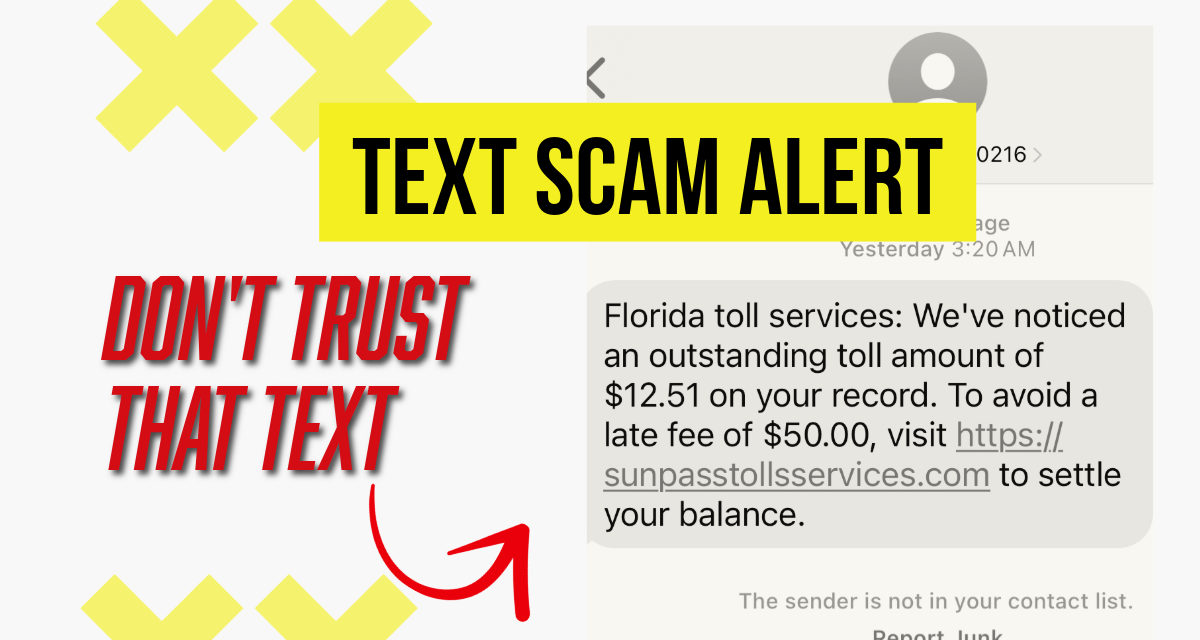Could that text be a scam? They try to sound official and urgent with one goal in mind – scamming you out of your hard-earned money. There are so many scams out there, it’s hard to keep up. One rule of thumb to protect yourself is don’t trust that text.
Sure, you may bank at Chase, have a SunPass, or have ordered something from Amazon, but that doesn’t mean any of these companies are really reaching out to you to verify your personal information or make a payment.
When it comes to text messages, you have to be careful about who you respond to and clicking on any links. If you don’t know the sender, always be careful. I know some people who just automatically ignore any number that’s not in their address book.
Text Scam Trap
The other day I got a strange text. The sender’s number was from a (306) area code, which is actually from Canada. Yet, they led with “Florida Toll Services.” And they tried to say I owed a balance on my SunPass account. That same pass that I haven’t used in decades. Yeah, No I don’t think so!
I took no action other than to research if this is a known scam. And I quickly found a recent news report titled “LOCAL NEWS Consumer alert: SunPass warns of text scam.” Watch the video below for more on the SunPass text message scam:
Apparently, these urgent text messages are an attempt to get money and your personal information. Don’t trust that text. Always do your research and most definitely don’t click any link. No matter how real that message may seem – Beware.
The best course of action is to ignore and not respond to these text messages. If you have concerns it’s real, then do your research and contact the company directly.
Text scams are big business. In 2022, consumers lost over $328 million dollars due to text scams. Don’t let that be you! Always remember don’t trust that text.
For more tips on How to Protect Yourself from Scams, check out this blog post.



